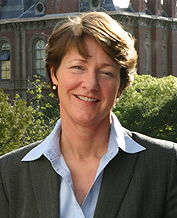Senior Researcher, UC Berkeley’s Center for Studies in Higher Education (CSHE)
Home Page

Diane Harley is an anthropologist and senior researcher at UC Berkeley’s Center for Studies in Higher Education (CSHE). Her research focuses on the policy implications of integrating new media into complex academic environments. Areas of investigation include digital resource use in the arts and humanities, the economics of educational technologies, cross border e-learning, the future of general education, and the relationship between faculty culture and emerging models of scholarly communication. As Executive Director of Berkeley’s Multimedia Research Center (BMRC) she contributed to the development, deployment, and evaluation of the prototype for Berkeley Webcast. Prior to her work at UC, Diane managed multimedia education projects with various universities, publishers, museums, and software developers, as well as taught undergraduate and graduate courses in anthropology and human biology. She holds M.A. and Ph.D. degrees in Anthropology from UC Berkeley.
Diane is currently co-Principal Investigator for a large project funded by the Andrew W. Mellon Foundation: Assessing the Future Landscape of Scholarly Communication. This work is focused on the needs and desires of faculty for “in-progress” scholarly communication (i.e., forms of communication employed as research is being executed) as well as archival publication.
Links: Home Page
Quote:
Many of those involved in supporting electronic and open access publishing and communication ventures see ‘the lack of willingness of the faculty to change’ as a key barrier to moving to more cost-effective publishing models in an environment of escalating costs and constrained resources. Our goals are to assess through in-depth interviews what faculty in different disciplines actually say they need and value in their scholarly practice. Such an approach will provide a nuanced, dispassionate, and insightful analysis of the roles that universities and faculty do and can play in the resolution of the perceived ‘crisis in scholarly communication’ in an electronic age.